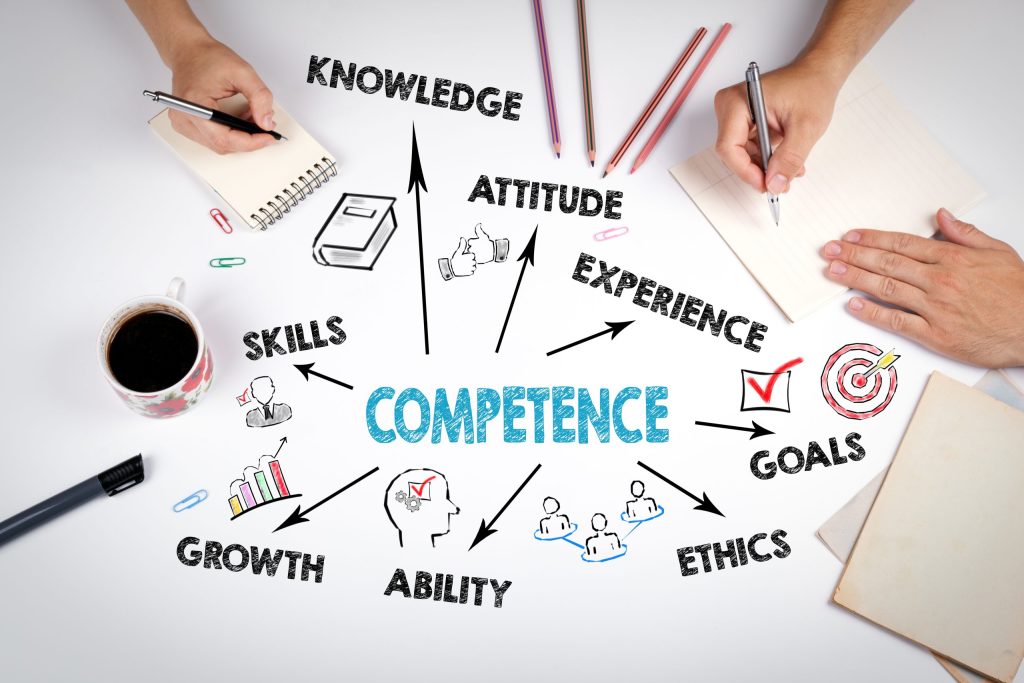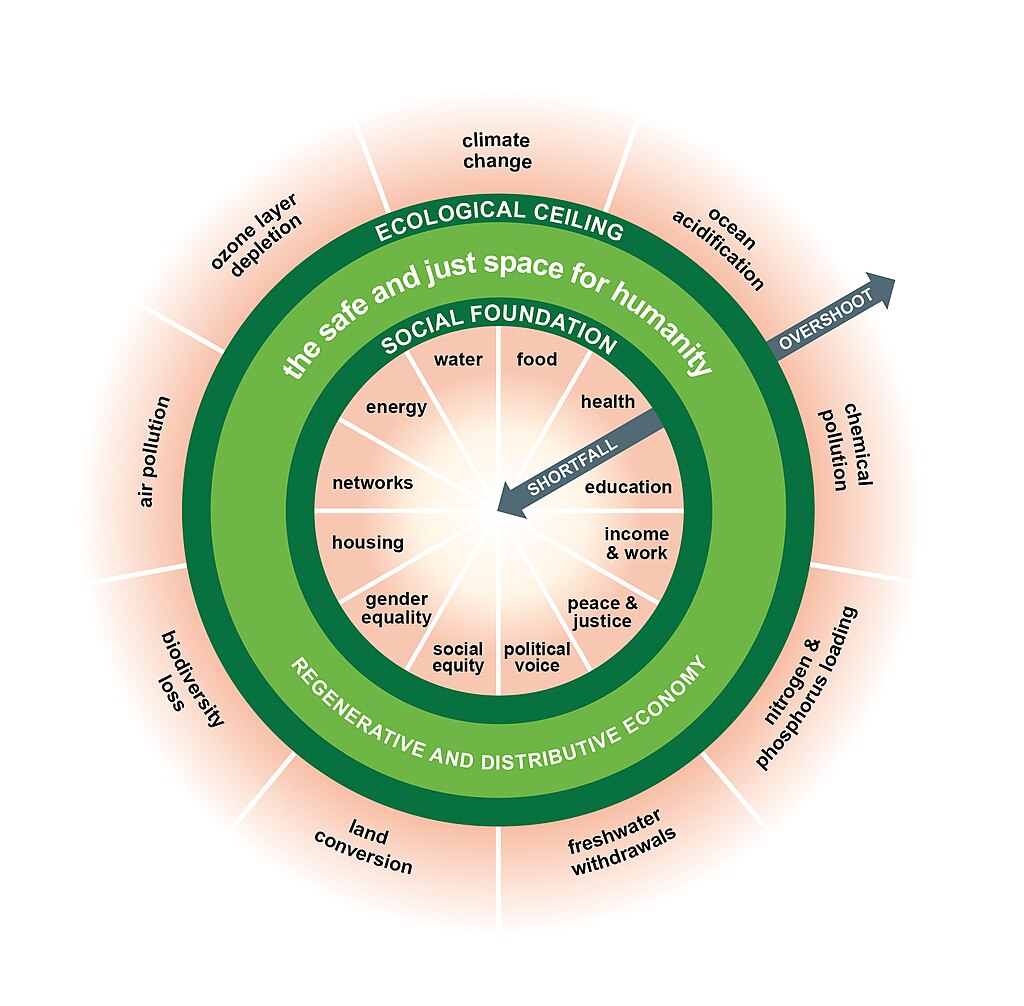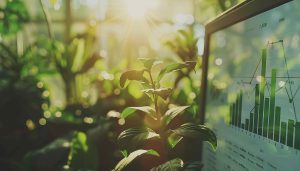Pariisin ilmastosopimuksen tavoite 1,5 asteen maailmanlaajuisen keskilämpötilan nousun rajasta höyrystyi jo pois ja maailma jatkaa lämpenemistään. Lyödäänkö nyt hanskat tiskiin…
Tekijät | Authors

From Sustainability Competences to Planetary Well-being: Rethinking Leadership and Competences for the Future
The climate crisis and ecological decline are no longer distant challenges. They are affecting supply chains, employee well-being, and organisational resilience. We have already crossed several of the planet’s natural boundaries, and this raises a question: how can we ensure long-term prosperity within the limits of our planet?
The answer lies in moving toward a broader vision: planetary well-being. By connecting sustainability competences and planetary well-being in work communities are given a new lens for resilience and responsibility.
Crossing Natural Boundaries
Planetary boundaries define the safe operating space for humanity. Crossing them has direct consequences for societies and organisations. Traditionally, these were seen as “environmental” challenges external to business operations. Today, it is clear there is no outside: human well-being and organisational success are directly dependent on ecosystem health (Oksanen et al., 2019).
Acknowledging these boundaries means rethinking ambition. By aligning our decisions with planetary well-being, we can create organisations that are resilient, trusted, and future oriented.
Planetary well-being reframes prosperity by integrating personal, organisational, and ecological well-being into a single perspective. Rather than focusing solely on economic growth or efficiency, it offers organisations a practical framework for decision-making and highlights how local workplace practices connect to global sustainability outcomes (Oksanen et al., 2019). However, research shows that despite the growing integration of sustainability into strategies, organisations often fail to translate these commitments into daily practices, precisely where meaningful impact is created.
Education promotes the development of skills, competences and attitudes that can be used to reduce unsustainable practices
Education and lifelong learning play a significant role in the transition towards more environmentally sustainable organisations. According to Wals and Benavot (2017), in addition to shaping values, behaviours, and worldviews, education also promotes the development of skills, competences and attitudes that can be used to reduce unsustainable practices and improve resilience to environmental degradation and climate change.
Competences for Driving Planetary Well-being
Shaping planetary well-being requires specific competences, skills, attitudes, and values that go beyond technical knowledge. GreenComp The European sustainability competence framework, which was published in 2022, can be used also in workplaces as a reference model for sustainability competences. The GreenComp competency framework defines a set of sustainability competences that guide learners to acquire the knowledge, skills, and attitudes that promote empathetic, responsible, and thoughtful thinking, planning, and action to maintain environmental well-being and public health (Bianchi et al., 2022).
It identifies four key competence areas that support planetary well-being in several ways:
- Embodying sustainability values
Learners are encouraged to value sustainability, support fairness for current and future generations, and recognise humans as part of nature. This fosters empathy and responsibility for ecosystems, directly linking human and planetary health. - Embracing complexity
Competences like systems thinking, critical thinking, and problem framing help individuals see how economic, social, and ecological systems are interconnected. This holistic view is essential for tackling planetary challenges such as climate change, biodiversity loss, and resource depletion. - Envisioning sustainable futures
Futures literacy, adaptability, and exploratory thinking empower people to imagine alternative futures and pathways toward sustainable societies. By anticipating risks and trade-offs, learners can prepare for transitions that safeguard long-term planetary health.
- Acting for sustainability
Political agency, collective action, and individual initiative drive change at multiple levels. These competences enable individuals and communities to demand policies, collaborate for sustainable practices, and take personal responsibility for reducing ecological footprints. These competences provide a foundation for leadership development, team training, and organisational culture. They shift the focus from short-term problem-solving to long-term resilience and innovation.
Some critiques note that GreenComp can feel too broad and difficult to translate directly into workplace contexts (Hurme, 2025). However, it remains a valuable reference point: it provides a shared language for sustainability competences and helps organisations structure their development efforts.

Figure 1. Competences drive planetary well-being. (Adobe Stock).
Competence Development Needs in Practice
Current sustainability competence levels in organisations are not yet sufficient for managing the complexity of sustainability. Leaders often acknowledge the importance of sustainability but evaluate their own abilities as weaker than required (Hurme, 2025).
Sustainability competence levels in organisations need to develop
Three main competence development needs stand out:
- Futures literacy: the ability to imagine, prepare for, and adapt to alternative futures. Without this, organisations risk making short-term, reactive decisions that perpetuate unsustainable practices.
- Systems thinking: understanding how social, economic, and ecological systems are interconnected. Many leaders struggle to connect local decisions with global impacts, which limits their ability to create transformative strategies.
- Reflective practice: the capacity for leaders to critically assess their own values and behaviours considering sustainability goals. Without reflection, sustainability remains external to leadership identity rather than integrated into decision-making.
Developing these competences requires competence development initiatives that combine frameworks like GreenComp with sector-specific approaches. It also requires supportive organisational cultures where long-term thinking, experimentation, and collaboration are rewarded.
The Role of Companies: From Awareness to Implementation
The competence gap highlights a key challenge: awareness is not enough. To close the competence gap, companies need to move from strategy statements to concrete development pathways.
Organisations can respond for example by:
- Integrating foresight and scenario planning to strengthen futures literacy.
- Building systems mapping and problem-framing exercises into company and leadership training.
- Encouraging reflective practices such as peer dialogues, coaching, and value-based decision-making sessions.
Practical frameworks like GreenComp, Doughnut Model can be used to inspire competence development initiatives. To promote these in practice, the EU-funded SWEPPP (Sustainable Well-being Education for Personal, Professional and Planetary Well-being) project has produced both materials for education and a guide aimed at anyone who wants to promote holistic well-being in a sustainable way.
The GreenComp framework (Bianchi et al., 2022) can guide companies in planning by showing what skills and values are needed for sustainability. It helps shape training, leadership programs, and workplace practices so that everyday work supports both people and the planet.
Doughnut model helps to to evaluate whether practices create value
For organisations, the Doughnut model (Raworth, 2012) provides a tool to evaluate whether practices create value within both social and ecological limits. It can be used to encourage discussions and sharing opinions and values.

Figure 2. Doughnut Economy framework (Recipes for Wellbeing, n.d. Doughnut economy).
The SWEPPP project (2023) complements this by linking personal, professional, and planetary well-being. It emphasises transversal skills such as resilience, ecological responsibility, and collective action by offering open resources for example for encouraging employees to integrate nature-based routines and building professional resilience by aligning organisational goals with planetary health.
These small but meaningful practices connect individual behaviour with larger systemic change. By addressing competence gaps, companies not only strengthen sustainability performance but also build resilience and innovation capacity.
The Future of Work is Planetary
Planetary well-being is not an abstract idea, it is a strategic necessity. Frameworks presented above form a combined pathway:
- GreenComp sets the skills,
- the Doughnut defines the boundaries, and
- SWEPPP ensures implementation through everyday practices for embedding sustainability competences into leadership and organisational culture.
But frameworks alone are not enough. Sustainability competences must be part of the strategy and its implementation. Companies that invest in these competences are not only protecting ecosystems but also building resilient, innovative, and trustworthy organisations. The workplaces of the future will not just be sustainable; they will actively contribute to planetary well-being.
References
Bianchi, G., Pisiotis, U., & Cabrera, M. (2022). GreenComp: The European sustainability competence framework (JRC Publications Repository No. JRC128040). Publications Office of the European Union. https://doi.org/10.2760/13286
Hurme, L. (2025). Esihenkilöiden kestävyysosaaminen organisaatioissa [Bachelor’s thesis, University of Turku].
Oksanen, M., Kankaanpää, S., Lähteenoja, S., Lehtonen, M., & Uusitalo, P. (2019). Planetary well-being. University of Turku.
Raworth, K. (2012). A safe and just space for humanity: Can we live within the doughnut? Oxfam. Haettu 15.9.2025 osoitteesta https://www-cdn.oxfam.org/s3fs-public/file_attachments/dp-a-safe-and-just-space-for-humanity-130212-en_5.pdf
Recipes for Wellbeing. (n.d.). Doughnut economy. Haettu 22.9.2025 osoitteesta https://www.recipesforwellbeing.org/doughnut-economy/
SWEPPP Sustainable Well-being – Education for Personal, Professional and Planetary Well-being. (2023). Erasmus+ Project (2023-1-PL01-KA220-HED-000156944).
Wals, A. E., & Benavot, A. (2017). Can we meet the sustainability challenges? The role of education and lifelong learning. European Journal of Education, 52(4), 404–413. https://doi.org/10.1111/ejed.12250
The text is part of the publications of the Global Gateway research group.
Acknowledgements
This work was supported by the Erasmus+ Project SWEPPP Sustainable Well-being – Education for Personal, Professional and Planetary Well-being (2023-1-PL01-KA220-HED-000156944). Views and opinions expressed are however those of the author(s) only and do not necessarily reflect those of the European Union or Fundacja Rozwoju Systemu Edukacji (FRSE). Neither the European Union nor FRSE can be held responsible for them.








